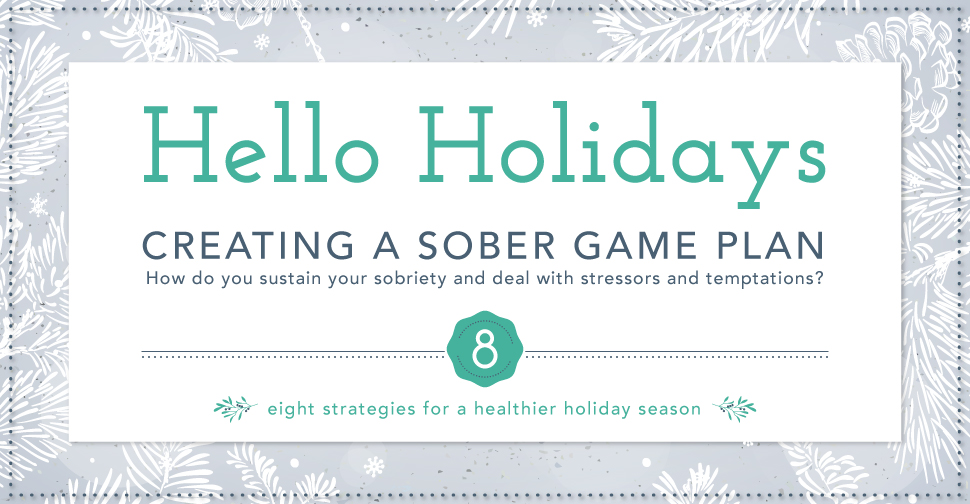Richard Buckman often grew anxious as Thanksgiving Day approached. He spent years longing for a blissful – or even civil – family holiday. “I had recalled drinking myself into oblivion several times in an effort to block out uncomfortable memories,” he says. “In sobriety, I was determined not to have to feel that way again.”
After a rocky first year in recovery, Buckman decided to start his own tradition. He hosted a Thanksgiving Day Open House for members of his 12-step support group on Long Island, New York. The event became “a very big occasion,” Buckman says, with an abundance of food donated and many guests lingering into the evening.
That was more than 25 years ago. Today, Buckman’s holiday ritual lives on, even though he has since moved away. Now Board Chair of the national advocacy group Faces & Voices of Recovery, Buckman says he returned to Long Island recently and “sure enough, 25 years later, we were still providing this welcoming space for those in need.”
What’s your game plan for the holidays? How do you sustain your sobriety and deal with stressors and temptations? We asked men and women in long-term recovery to share their insights, which we’ve included in these eight strategies for a healthier holiday season:
1. Be the Boy Scout of Sobriety.
The scout’s motto – “be prepared” – is a fitting adage for anyone in recovery. “When I first got sober, the holidays filled me with fear and loathing. It wasn’t really the Hallmark channel at our house,” says Dana Bowman, a part-time English professor and the author of “Bottled: A Mom’s Guide to Early Recovery“. “Now, with a few years of sobriety in me, I actually look forward to all this festivity, but I always have a few tools handy to keep my Christmas spirit intact.”
Bowman never attends a party without a can of sparkling water in hand, food in her stomach and keys in her pocket. Her exit strategy includes a code word (“squirrel”) that she shares with husband Brian when she wants to leave. That strategy came in handy at Brian’s recent office party, when an inebriated guest bumped into Bowman and spilled a full beer onto her. “I took one look at Brian, and through gritted teeth, uttered the code word: SQUIRREL!,” Bowman laughs. “I think that lady thought I was nuts. She started looking around and saying, “Wha-? Whatssit? Where?!”
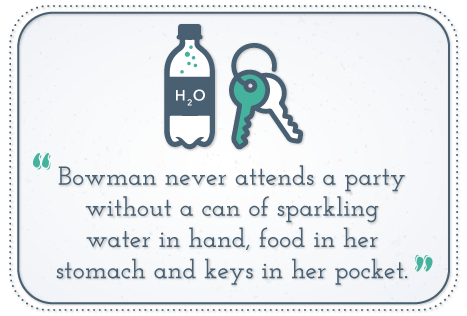
Planning time for meditation and self-care can also ease your holiday stress. And of course, knowing your limits and how to say “NO” frees up time for more joyous pursuits.
“Think everything through before you do it. Do you really want to be at that holiday party? Do you need to be? Always have a plan before you go, how you’ll get there and how you can leave when you want to,” says Kelly Fitzgerald, a.k.a. The Sober Señorita, who has been in recovery since 2013. “Think about what your triggers might be beforehand and try to deal with them as they come.”
2. When they ask, “Why aren’t you drinking?” try this:
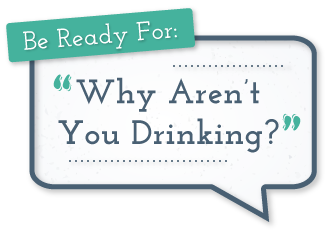 Most party guests won’t know or care whether you’re drinking. But if you do face the query, a quick comeback can put you at ease. Here are some of our favorite responses to the question, “Why aren’t you drinking?,” from the readers at the non-profit New Zealand website, livingsober.org:
Most party guests won’t know or care whether you’re drinking. But if you do face the query, a quick comeback can put you at ease. Here are some of our favorite responses to the question, “Why aren’t you drinking?,” from the readers at the non-profit New Zealand website, livingsober.org:
“I feel better when I don’t drink.”
“It doesn’t suit me anymore.”
“I’m good, thanks.”
“My doctor has told me I can’t drink for health reasons.”
“I’m driving.” “I’m working (early) tomorrow.” “I’m on antibiotics.”
“Every time I have a glass of wine, a fairy dies.”
“No thanks, if I have one, I’ll want 23 more.”
“I don’t have a stop button when it comes to alcohol.”
“Is it compulsory?”
“I prefer to wake up with a clear head in the morning.”
“Wine was interfering with my sleep. And nothing is more important than my sleep”
“I’ve just lost the taste for it. Doesn’t interest me anymore. I’d love a sparkling water, though, if there is one.”
“I used to drink. I don’t drink any more at all.”
“I realized that I had exceeded my lifetime quota of alcohol, so I quit.”
3. Shore up support.
Giving others a heads-up about your goals creates accountability and bolsters support, says Paul Churchill, host of the popular “Recovery Elevator” podcast. Churchill suggests sending an email such as this one to people you’ll see at holiday events:
“I’m looking forward to seeing everyone at Thanksgiving dinner this Thursday. I just wanted to let everyone know I will not be drinking at Thanksgiving so please don’t offer me a beverage and if you see my with a drink, please roundhouse it out of my hand.”
“This email will do more for your sobriety than you will ever know,” Churchill says.
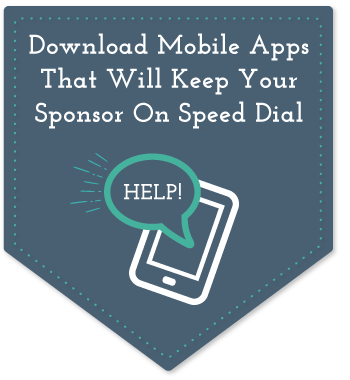 Remember to check in with your sponsor, therapist or support network throughout the holiday season. There are even mobile apps that will keep your sponsor on speed dial or warn close friends and family when you’re in danger of drug relapse. Sober Grid is a popular iOS app with a “Burning Desire” button that lets others know when you’re in distress or craving alcohol. You can also find a ride to recovery meetings in your area and connect with sober friends while traveling, using the app’s geosocial networking features.
Remember to check in with your sponsor, therapist or support network throughout the holiday season. There are even mobile apps that will keep your sponsor on speed dial or warn close friends and family when you’re in danger of drug relapse. Sober Grid is a popular iOS app with a “Burning Desire” button that lets others know when you’re in distress or craving alcohol. You can also find a ride to recovery meetings in your area and connect with sober friends while traveling, using the app’s geosocial networking features.
4. Explore the growing sober social scene.
Sober clubbing into the wee hours? It’s a new trend in some major cities, with pre-dawn parties that combine yoga, dancing, camaraderie, and organic energy drinks. Being in recovery today means having social options beyond movie nights and bowling alleys.
“When I got sober, I still wanted to be social, but I didn’t want to necessarily go to an open bar at a nightclub,” Fitzgerald says. “I was able to find dinner and show-type events that suited my sober lifestyle.”

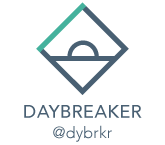 Alcohol-free parties sponsored by Daybreaker.com are spreading from Austin to Vancouver, attracting hundreds of partygoers at each event. “At Daybreaker, we dance our faces off before work and feel gloriously healthy while doing so,” the organizers say on their website.
Alcohol-free parties sponsored by Daybreaker.com are spreading from Austin to Vancouver, attracting hundreds of partygoers at each event. “At Daybreaker, we dance our faces off before work and feel gloriously healthy while doing so,” the organizers say on their website.
Finding sober travel companions is also getting easier. Sober safaris, booze-free cruises, and the popular Sober Club Med (on the Mexican Riviera in 2017) are among the trips you can take with Sober Vacations International.
 In some states you can attend sober concerts organized by sobernightlife.net, whose rallying cry is “Just because you’re sober doesn’t mean the fun is over!” Non-profit organizations such as Young People in Recovery and collegiate recovery programs sponsor sober tailgate parties and other fun events, often open to non-members.
In some states you can attend sober concerts organized by sobernightlife.net, whose rallying cry is “Just because you’re sober doesn’t mean the fun is over!” Non-profit organizations such as Young People in Recovery and collegiate recovery programs sponsor sober tailgate parties and other fun events, often open to non-members.
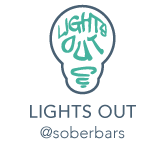 Perhaps the next new trend will be the “dry bar” – welcoming revelers with live music, sports on the big screen, and all the features of a friendly tavern, sans alcohol. A handful of dry bars have been popping up in recent years, including The Other Side in Crystal Lake, Illinois, and Lights Out in Lancaster, Pennsylvania.
Perhaps the next new trend will be the “dry bar” – welcoming revelers with live music, sports on the big screen, and all the features of a friendly tavern, sans alcohol. A handful of dry bars have been popping up in recent years, including The Other Side in Crystal Lake, Illinois, and Lights Out in Lancaster, Pennsylvania.
5. Get outside yourself.
Helping others is a powerful way to help yourself in recovery. Research shows that service work in a 12-step program such as Alcoholics Anonymous (AA) can actually reduce drug cravings, according to studies at Case Western University.
“Getting active in service in the 12-step program cuts the risk of returning to the drink-trouble cycle in half — and particularly benefits young adults with social anxiety,” says Dr. Maria E. Pagano, Associate Professor of Psychiatry at Case Western and Principal Investigator of the “Helping Others Live Sober” research project.
“AA can also stand for ‘attitude adjustment,’” Pagano says. “Helping others helps transform the self-centered thinking at the root of the illness to an attitude of gratitude.” Author and screenwriter/producer Robert Hammond says giving back helps him appreciate the blessings of recovery.
“My most powerful Thanksgiving came just a few days after I returned from helping people recover from Hurricane Katrina in New Orleans,” says Hammond, who has two decades of sobriety. “That really put things in perspective. As I visited my family the following week, I had a deeper appreciation for my own situation and a sober, more loving experience with the people in my life.”
You can cultivate gratitude by reaching out in creative ways, such as Buckman’s Thanksgiving Day feast with a “family of choice.”
“No matter how many problems you may think that you have, you can always find something within your situation for which to be grateful,” Hammond notes. “When I used to complain to my sponsor, he would tell me something like, ‘Why don’t you go down to the local jail and talk to an inmate facing a life sentence or find someone in a hospital suffering from a terminal disease? Or go to the local homeless shelter or soup kitchen and talk to a homeless person . . . See if you can get them to feel sorry for you.’”
6. Join a marathon meeting.
Connecting to extra peer support can make it easier to stay sober during the holidays. Many 12-step groups such as Alcoholics Anonymous or Narcotics Anonymous offer all-night “marathon” meetings – either online or in person. Meetings typically start the day before Thanksgiving, Christmas, and New Year’s. An effective way to locate your nearest marathon or regular 12-step meeting is at meeting finder. You can also join a marathon meeting online at intherooms.com.
Or try a mobile app such as Cassava, Meeting Guide, or 12 Steps AA Companion to find recovery support near you. If you’re looking for a secular alternative, you can find a peer meeting at non-profits such as Smart Recovery, LifeRing and Secular Organizations for Sobriety (SOS). Online chat forums are also available to support your recovery.
7. Embrace mocktail hour.
Faux cocktails are on the rise, thanks to the mixology movement and more people wanting to lose the booze. Whether they abstain for recovery, pregnancy, health or religious reasons, adults today are thirsty for refreshing, alcohol-free drinks. And with a mocktail in hand this holiday season, you won’t have to field as many offers for booze.
Some mixologists even take elaborate steps to invent complex non-alcoholic drinks. Bar Tonique in New Orleans, for example, makes a Celery Soda with house Gum syrup, lime juice, Bitter Truth Celery Bitters and charged water. Acorn Restaurant in Denver blends complex bitters with grenadine, blackberries and coconut water for a popular mocktail.
To help you master the mocktail, we’ve put together this collection of recipes that mimic classic bar drinks.
Want to continue your holiday eggnog tradition? Here’s a creamy, alcohol-free version from A Sweet Pea Chef. Or try this easy gingerbread eggnog that contains no eggs, from Cafe Johnsonia. You can also make a healthy, booze-free Driver’s Punch: BBC Good Food.
8. Treat your recovery as a gift.
“Self-pity and self-absorption are the true culprits for ruining any holiday – or other time of the year,” says Julie Orlando, who often drowned her sorrows in alcohol after losing her toddler to a rare genetic disorder. Orlando credits Women for Sobriety with helping her recover from alcoholism; she’s been sober now for more than 16 years. Orlando says she’s come a long way from the early days of recovery, when she would unleash an inner beast she calls “Soberzilla.”
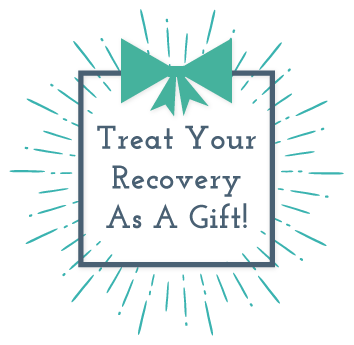
“The mental war on the compulsion to drink and feeling like we are missing out on something, or that we are being punished, really has no place in our heads,” she notes.
Treating your recovery as a gift, one that’s never taken for granted, will strengthen your resolve, Orlando says.
“I can’t drink, so I don’t — and I don’t pretend or toy with the idea that I can. Truth is truth, whether it is a holiday or a Monday, I cannot drink one, ever,” Orlando says. “Truly, the respect I have earned for putting “Soberzilla” to bed for good and accepting myself for who I am and for a disease I am responsible for is really worth it.”

